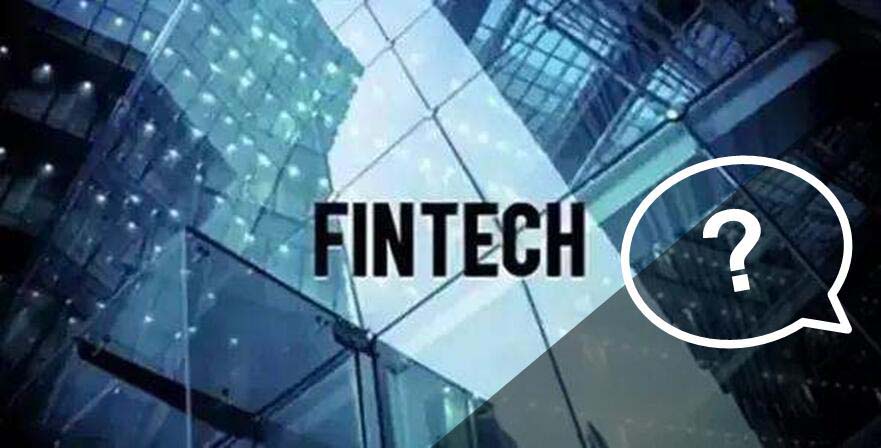“FinTech” is a hype, it’s merely a new name

Information technology never changed what finance is
In recent years, FinTech (financial technology) represents the rapid rise of technology to promote the transformation and upgrading of the traditional financial industry. Looking at the changes in the way commercial banks operate, it has evolved from the traditional, single, manually-operated and counter service-oriented setup at physical branches to carrying out transactions electronically, without necessarily going to branches, or through self-service and other diversified and extended channels. For consumers, this rapid evolution of banking services from the original passbook, to a variety of bank cards, and now into the “card-less era” has already disrupted the usual consumer awareness and experience, to the point of feeling helpless how information technology has become so powerful.
“In my opinion, only those technology-based products and platform that are relied on to improve the efficiency of financial services should be considered as Fintech. ” Raymond Lin, CEO of CLPS said in a forum, “In the face of sweeping upsurge in FinTech we should remain calm and strong, noting that technology is just superficial, with technological innovations being used as tools for financial services, impacting only the business process, service channels, products, and so on, but with the innate characteristics of the financial industry kept unchanged by advances in science and technology.”
Understanding accurately what FinTech is
At present, as “FinTech” boom becomes the new order of doing things, with mobile, digital payments, P2P borrowing and so on, being embedded in our day-to-day life, many Internet companies have been renaming themselves as FinTech companies, often speaking in one voice: “FinTech will disrupt the traditional financial industry.” However, is this true?
Actually, innovation in the integration of finance and technology has a long history and did not just happen overnight. In retrospect, financial development always goes hand in hand with advances in science and technology. From history, the advent of smelting and printing techniques led money’s evolution from the initial “barter” trade to currency circulation, increasing its speed, size and convenience in the process; telegraphy, telephone and other advancements in communication technology made financial transactions real-time and border-less, paving for a much more efficient use of resources.
Thanks to advancements in modern information technology, the financial industry has become heavily “digitalized” and “informationalized” in this era of smart technological development in the areas of mobile, internet, and data. The new rounds of technological revolution and industrial transformation made the financial industry a product of deep integration of finance and technology, a financial innovation driven by scientific and technological progress. Intrinsically, though, FinTech is a mere part and parcel of technology and does not dwell on functional domains in finance and the risks involved; it just cannot change the fundamental rules of finance.
Participants in the FinTech market include the traditional financial institutions as well as emerging Internet and start-up companies and other new entrants. But whatever type of emerging technology is being used in the financial sector, product development must still abide by existing financial rules. Being faced with a number of stunning “FinTech” layouts, senior management in the financial industry should not be easily carried away and follow blindly the trend. Violating financial rules to avoid supervision in the guise of innovation would put the financial system on a shaky ground.
Major concerns regarding risks in financial technology
Many financial institutions are seeking FinTech services with the common belief that FinTech will “smart-ify” procedures thereby minimizing pressure from financial regulators.
But we cannot ignore the fact that the financial industry is a high-risk industry as it deals with wealth, making it one that is full of temptations. Risks inherently accompany the financial industry, so safeguarding the industry against them is a never-ending thrust. Enhancements in risk screening, pricing, monitoring, disposal and other processes are considered the most basic among risk practitioners and are at the core of their task, but pose the biggest challenge as well. Along with the progress in science and technology, in terms of risk control, the financial industry is not exempted as a result of technological innovation. Even so, it will be even more serious due to this innovation. Advancements in FinTech will make financial process more vulnerable to risks where one would always get involved in a cat-and-mouse game. The use of advanced technology in the financial field is never easy but once the embedded financial risks are put in play, it may even bring greater impact to the financial industry.
For example, the use of financial technology on services across different sectors, markets and institutions will make financial risks more easily passed on and become more widely spread at a faster rate; concurrently, financial products tagged with technological innovations will render financial risks more complex and hidden. The 2007 US subprime mortgage crisis is a very typical example.
FinTech promotes the use of infrastructure for online and open financial services, but this renders the technology vulnerable to risks that can be further accumulated through network security and risks. In the past, a risk that would occur in one branch is usually confined to that local branch alone. Now, with large concentration of data, a risk happening in one place or a branch may affect the entire system and propagate risks among banks, securities and insurance companies. Hence, with the continued emergence of new business models in these times, more attention should also be paid to the risks posed by developments in FinTech.
Dig deeper into the advantages of FinTech innovations
There’s no argument that FinTech will provide better services for traditional finance in the long run. The financial industry nowadays is so data-intensive and technology-driven that when innovative application of information technology is ignored, it is possible to be eliminated by the information age. Whoever uses the information technology earlier, better and safer and address the weak and pain points of the financial system will take the initiative in the competition and gain the most in the end.
However, with the current overwhelming run of FinTech, there seems to be a misconception. Whether it’s the traditional financial institutions or emerging Internet companies, there shouldn’t be too much obsession with front-end innovations like QR code or biometric payments as they are superficial and does not go into the deeper concepts of financial business. This use of fragmented technology will greatly underestimate the power of innovation that FinTech could actually bring about.
Therefore, with FinTech growing by leaps and bounds, traditional financial institutions will undoubtedly keep up with the pace when it comes to financial and technological innovation, focusing, in particular, on end-to-end business processes. This include engaging in big data, cloud computing, mobile internet, artificial intelligence and other technologies and exploring applications involving payment and settlement, investment and financing, wealth management, retail finance and other areas, with emphasis on providing customers a one-stop, sophisticated and integrated financial service platform. At present, more and more traditional financial institutions and Internet companies are into precision marketing, customer redirections, product consignments and other aspects of cooperation, taking advantage of complementary benefits and cooperative interaction in order to achieve a “1 +1> 2” collaborative result.
Conclusion
At present, FinTech is still in the period of rapid development and evolution. Although on one hand, information technology has already made a great impact on the traditional financial domain with more players doing financial transactions the IT way, the transaction costs must also be reduced on the other, for the parties to create greater efficiency and promote overall social welfare. In any case, the drastic changes brought forth by FinTech are just part of the alternative innovation for traditional finance, and do not change the nature of finance at all.
Being in the forefront of providing FinTech solutions and service support, CLPS, with its pool of technical experts, focuses on cutting-edge technology research and development particularly in the fields of big data, blockchain, cloud computing and other technical research and customized products, implementing the R&D results to projects related to credit cards, reward points, internet payment and other business areas.
CLPS believes that FinTech should just be viewed as information technology penetrating a huge financial system. The basic role of finance is to optimize funds for social allocation, acting as a service entity that would help spur economic development. Embedding FinTech into the financial industry may come in various platforms and levels of advancements but core financial services and their purpose remain the same. Real FinTech companies should focus on driving technology innovation with the core thrust of solving drawbacks in the traditional financial industry in order to provide excellent service at a reduced cost. We should always offer an objective and logical mindset, and explore and research together to provide a safe and secure environment where FinTech can play its role to promote financial reform and development in a positive light.


Follow Us